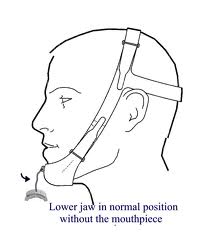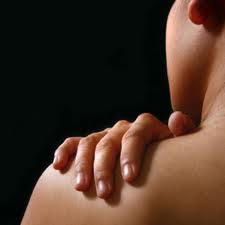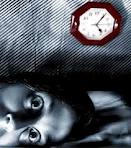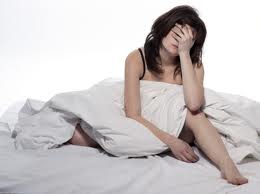Snoring is a common and annoying problem. The nature of the problem varies from person to person, and it is therefore important to find an anti snoring device that works for you. Continue reading


Snoring is a common and annoying problem. The nature of the problem varies from person to person, and it is therefore important to find an anti snoring device that works for you. Continue reading

We are worried about so many things—work, finances, health problems, etc. But do you know that even children experienced stress? Not only adults become stressed about our worldly problems and activities. Children experiences stress and are more susceptible to a lot of forms of stress due to their age. Many people think that children are never stressed and only love to have fun and play but the truth is that even children become worried about many things and also become physically stressed in school and play. Continue reading

Many kids are brought to emergency departments due to falls from beds. Babies, toddlers and even young kids can be at risk for falls and may require supervision from parents and caregivers during ambulation, playtime and even sleeping. Your child could be at risk for falls even while he or she is sleeping because nobody remains complete still during sleep. Also, kids often times play in their bedrooms. Safety of your kids should always come first. Bed side rails have been popular ever since because installation of these furnitures provide safety and security in most households. Continue reading

When a disease is idiopathic or has no definite cause, treatment is very difficult. The symptoms may be varied and these can be very confusing. One such condition is neurofibromyalgia. If you are diagnosed with neurofibromyalgia, you must go to a doctor who is capable and willing to help you with your symptoms. You could go straight to a neurologist for proper treatment.

Your infant baby suddenly became fuzzy, seems to be all red in the face and cannot sleep. He seems restless and drools a lot. The first thing you did was to touch your baby and you found out that he seems a bit hot than the usual. “Oh no! My baby is having a fever!†You scream to yourself. Continue reading

Congratulations! Oh mother, your baby is now considered a full term baby, even though your due date is three weeks away.  Only five percent of babies are born on their due date. Most babies won’t be coming for three to five more weeks for first time mothers but if your baby decides to come out now, his lungs will most likely be ready to breathe on his own outside the womb. The baby has already passed the 6th month of gestation wherein the lungs become mature enough to produce surfactant—the fluid that prevents tension in the lungs. The baby is now very much welcome to the world. Hush, because the baby may be ready to come out anytime soon. A little patience will do the trick. Continue reading

Insomnia is one of the most common sleep complaints. There are multiple types of insomnia based on the duration and potential causes. Of the types lasting less than three months, a more common one is acute insomnia. Others of this duration include circadian rhythm sleep disorders such as jet lag and shift work, as well as high altitude insomnia. Continue reading

Sleep is probably the best part of the day because in this process, you get to regenerate your cells and recover from all the stresses that you experienced the entire day. It helps you recharge your body and mind so that you may be able to do all those things all over again and perhaps with a chance at a level of improvement.

Narcolepsy is a chronic condition of sleep disorder wherein an irresistible daytime drowsiness and abrupt attacks of sleep takes place. This will result to serious distraction in daily activities. People who have narcolepsy frequently find it hard to stay awake for an extended period of time in spite of situations. Narcolepsy is not associated to depression, fainting, seizure disorder, lack of sleep or other conditions that may cause irregular sleep patterns.
Unfortunately, narcolepsy has no cure. But there are medications and lifestyle changes that can be consider as narcolepsy treatment that may help people affected with narcolepsy to deal with the symptoms.
For the first few years, symptoms of narcolepsy may get worse and persist for life. Symptoms of narcolepsy may include the following.
The exact factors causing narcolepsy is not yet known. Medical research considers genetics that may have a vital role. Stress, illness or exposure to toxins may contribute to the occurrence of narcolepsy.
The cure for narcolepsy is not yet known but there are medications that can help to deal with the narcolepsy symptoms and they are the following.
1.    Stimulant drugs.
 The most important narcolepsy treatment is the stimulant drugs which stimulate the central nervous system. It helps people affected with narcolepsy to keep wide awake all through the day. Health care providers frequently try modafinil as first medication for narcolepsy treatment because it is not addictive as other stimulants. Side effects of modafinil are not common but it may include, dry mouth, headache, anorexia, nausea and diarrhea. It may also tend to increase blood pressure particularly at high doses. Some may need narcolepsy treatment with methylphenidate or a variety of amphetamines. Even though these medications are efficient, they may also cause side effects like heart palpitations, nervousness and can also be addictive.
The most important narcolepsy treatment is the stimulant drugs which stimulate the central nervous system. It helps people affected with narcolepsy to keep wide awake all through the day. Health care providers frequently try modafinil as first medication for narcolepsy treatment because it is not addictive as other stimulants. Side effects of modafinil are not common but it may include, dry mouth, headache, anorexia, nausea and diarrhea. It may also tend to increase blood pressure particularly at high doses. Some may need narcolepsy treatment with methylphenidate or a variety of amphetamines. Even though these medications are efficient, they may also cause side effects like heart palpitations, nervousness and can also be addictive.
 2.    Selective serotonin or norepinephrine reuptake inhibitors.
 Doctors frequently recommend these medications to inhibit REM sleep, to help to lessen the cataplexy symptoms, hypnagogic hallucinations and sleep paralysis. Some of these medications are fluoxetine, atomoxetine and venlafaxine. Reduced sexual desire and delayed orgasm are the most frequent side effects of these medications.
Doctors frequently recommend these medications to inhibit REM sleep, to help to lessen the cataplexy symptoms, hypnagogic hallucinations and sleep paralysis. Some of these medications are fluoxetine, atomoxetine and venlafaxine. Reduced sexual desire and delayed orgasm are the most frequent side effects of these medications.
3.    Tricyclic antidepressants.
 Antidepressants like imipramine and protriptyline are medications that are very useful in cataplexy. Some of the side effects are constipation and dry mouth.
Antidepressants like imipramine and protriptyline are medications that are very useful in cataplexy. Some of the side effects are constipation and dry mouth.
4.    Sodium oxybate.
 Sodium oxybate is the mostly recommended by doctors for severe cataplexy. This medication helps the nighttime sleep to get better that is frequently poor in people with narcolepsy. This medication may also help to manage the daytime sleepiness in high doses. However, it can have severe side effects like bed-wetting, nausea and can make sleepwalking get worse.
Sodium oxybate is the mostly recommended by doctors for severe cataplexy. This medication helps the nighttime sleep to get better that is frequently poor in people with narcolepsy. This medication may also help to manage the daytime sleepiness in high doses. However, it can have severe side effects like bed-wetting, nausea and can make sleepwalking get worse.
These are the medications that can help to control the narcolepsy symptoms. Ask your doctor of what specific medications can be effective as narcolepsy treatment for your present condition.

Insomnia is a common sleep disorder. It is experienced by anyone especially when there factors to consider such as lifestyle, stress, diet, and others. Adults usually complain about insomnia but teenagers are very prone to this sleep disorder as well.